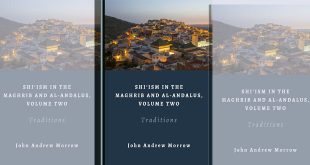This book, volume 2 of 8, deals in minute detail about the issue of ritual Prayer, from the viewpoints of the five Schools of thoughts.
Salat (prayer) is either obligatory (wajib) or supererogatory (mandub).The most important of prayers are the obligatory prayers performed daily five times, and there is consensus among Muslims that a person who denies or doubts their wujub is not a Muslim, even if he recites the shahadah, for these prayers are among the ‘pillars’ (arkan) of Islam. They are the established necessity of the faith (al-Din) that does not need any ijtihad or study, taqlid or questioning.
The schools differ regarding a person who does not perform the salat (tarik al-salat) due to laziness or neglect though believes in its wujub. The Shafi’is, Malikis and Hanbalis observe: He will be killed.
The Hanafis state: He will get perpetual imprisonment unless he starts performing the salat.
The Imamis state: Whoever neglects any wajib duty such as salat, zakat, khums, hajj and sawm, will be chastened by the hakim in a manner deemed appropriate by him. If he does not yield to remonstrance, he will be chastened a second time, and if he does not turn penitent, a third time. And if he continues in the same manner, he will be killed the fourth time (al-Shaykh al-Kabir, Kashf al-Ghita, 1317 ed., p79).
This work on the Shariah or Islamic Law offers a comparative study of the Divine Law that, according to authentic Islamic doctrines, embodies the Will of God in society. In the Islamic world view, God is the ultimate legislator. The five major schools that are used in the comparison are: Hanafi, Hanbali, Shafi’i, Maliki and Jaf’ari.
 Ijtihad Network Being Wise and Faithful Muslim in the Contemporary World
Ijtihad Network Being Wise and Faithful Muslim in the Contemporary World

